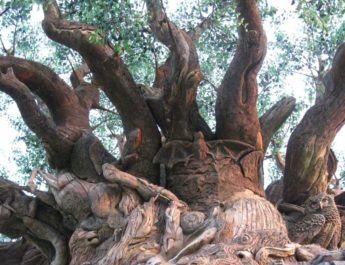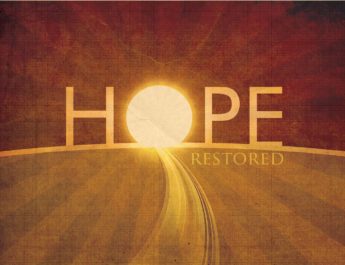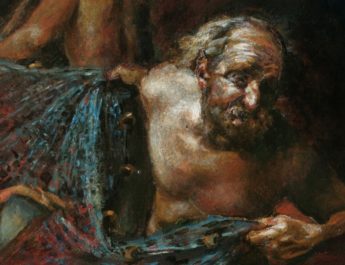Ezekiel 37:1-14
Holy Saturday ABC
BibleHub
1 The handA of the LordB came upon me, and he brought me out by the spiritC of the Lord and set me downD in the middle of a valley;E it was full of bones.
Notes on verse 1
A “hand” = yad. This is hand, ability, power. Hand in a literal sense, but also what one can do or the means by which one does it.
B “Lord” = YHVH. From havah (to be, become) or hayah (to come to pass, become, be). This is the name of the God of Israel, the self-existent and eternal one, the tetragrammaton. This pronunciation has been lost to time so “Lord” is generally used in its place.
C “spirit” = ruach. This is breath, wind, air, cool, spirit. This is wind, which resembles the breath and so this can be used figuratively for life itself or being frail/mortal/impermanent. It can refer to the air of the sky or the spirit.
D “set…down” = nuach. This is to rest, calm, camp, free, place, remain, satisfy, settle, station, or wait. It is rest and so implies settling down in a literal or figurative sense. This is perhaps the root verb of the name “Noah.”
E “valley” = biqah. From baqa (to divide, split open, tear, breach, break open, dash to pieces). This is a valley or plain. Properly, it refers to a place where the mountains have split – a wide, flat valley between them.
2 He ledF me all aroundG them;H there were very many lying in the valley, andI they were very dry.J
Notes on verse 2
F “led” = abar. This is to pass over or cross over. It is used for transitions, whether literal or figurative. It can also mean to escape, alienate, or fail. This is the root verb from which “Hebrew” is drawn.
G “all around” = sabib + sabib. From sabab (turning around, going around; to surround, cast, walk, fetch; to revolve or border in a literal or figurative sense). This is a circuit or a circle. It could refer to an environment, one’s neighbors, or a circular path round about.
H {untranslated} = hinneh. From hen (lo! Behold! If, though; an expression of surprise). This is to draw attention, show suddenness or surprise, or to emphasize the importance of the coming statement. See! Lo! Behold!
I {untranslated} = hinneh. See note H above.
J “dry” = yabesh. 9x in OT. From yabesh (to dry up, be withered, be dry; to be ashamed, confused, or disappointed). This is dry, withered (as for plants), or gone.
3 He said to me, “Mortal,K can these bones live?”
I answered, “O LordL God,M you know.”
Notes on verse 3
K “mortal” = ben + adam. Literally “child of humankind,” formerly translated “son of man.” Adam is perhaps from adam (to be red, make ruddy); related to adamah (ground, dirt, earth). This is man, humankind, also Adam’s name. It refers to a human individual or humanity.
L “Lord” = adonai. From adon (lord, master, owner); root means to rule or be sovereign. This is the actual Hebrew word for Lord used (in a different form) of humans and (in the present form) of God. It means someone who is in control.
M “God” = YHVH. Same as “Lord” in v1.
4 Then he said to me, “ProphesyN to these bones, and say to them: O dry bones, hearO the wordP of the Lord. 5 Thus says the Lord God to these bones:Q I will cause breathR to enter you, and you shall live. 6 I will lay sinews on you, and will cause fleshS to come upon you, and cover you with skin,T and put breath in you, and you shall live; and you shall know that I am the Lord.”
Notes on verses 4-6
N “prophesy” = naba. From nabi (prophet, prophecy, speaker; someone inspired). This is to prophesy. Older usages referred to raving, religious ecstasy that sometimes went along with music. In later usage, it was religious teachings that sometimes held prediction. Prophesying is speaking the truth of what is and where it will lead.
O “hear” = shama. This is to hear, call, consent, or consider. It implies listening intelligently, giving attention, and, because of these two factors, obedience and action are often implied.
P “word” = dabar. From dabar (to speak, declare, discuss). This is speech, a word, a matter, an affair, charge, command, message, promise, purpose, report, request. It is a word, which implies things that are spoken of in a wide sense.
Q {untranslated} = hinneh. See note H above.
R “breath” = ruach. Same as “spirit” in v1.
S “flesh” = basar. From basar (being a messenger, publish, carry preach; properly, this is being fresh, rosy or cheerful as one bearing news). This is flesh, the body, fat, skin, self, nakedness, humankind, or kin. It can also refer to private parts.
T “skin” = or. Perhaps from ur (to be made naked, exposed, or bare). This is skin, hide, or leather. It can also refer to a body.
7 So I prophesied as I had been commanded; and as I prophesied, suddenlyU there was a noise, a rattling,V and the bones came together, bone to its bone. 8 I looked, andW there were sinews on them, and flesh had come upon them, and skin had covered them; but there was no breath in them.
Notes on verses 7-8
U “suddenly” = hinneh. See note H above.
V “rattling” = raash. 17x in OT. From raash (to quake, shake, tremble, shake from fear; leap like a locust). This is quaking, shaking, rattling, or rumbling. It can also be commotion, tumult, earthquake, or confused sounds.
W {untranslated} = hinneh. See note H above.
9 Then he said to me, “Prophesy to the breath, prophesy, mortal, and say to the breath: Thus says the Lord God: Come from the four winds, O breath, and breatheX upon these slain,Y that they may live.” 10 I prophesied as he commanded me, and the breath came into them, and they lived, and stood on their feet, a vast multitude.Z
Notes on verses 9-10
X “breathe” = naphach. 12x in OT. This is to puff, inflate, breathe, blow, kindle. It can also be expire or lose life.
Y “slain” = harag. This is to strike with deadly intent so it can be kill, destroy, murder, or put to death.
Z “multitude” = chayil. From chul (to be firm, strong, prosperous; to endure). This is strength, wealth, ability, activity. It can refer to soldier or a company of soldiers as well as goods. It is a force of people, means, or goods. It can speak of valor, virtue, or strength.
11 Then he said to me, “Mortal, these bones are the whole house of Israel.AA TheyBB say, ‘Our bones are dried up,CC and our hopeDD is lost;EE we are cut offFF completely.’
Notes on verse 11
AA “Israel” = yisrael. From sarah (to persist, exert oneself, contend, persevere, wrestle, prevail) + el (God or god). This is God strives or one who strives with God; new name for Jacob and for his offspring. This refers to the people and to the land.
BB {untranslated} = hinneh. See note H above.
CC “dried up” = yabesh. Related to “dry” in v2. See note J above.
DD “hope” = tiqvah. From qavah (to wait, look, gather together, bind together, collect; figuratively, to expect). This is literally a cord used to attach things. Figuratively, it’s expectation, hope, what you long for.
EE “is lost” = abad. To wander off, lose self. This implies to perish, destroy, die, vanish, or be broken or corrupt.
FF “cut off” = gazar. 13x in OT. This is to cut or cut down. Used figuratively, it can mean to divide, exclude, decree, or destroy.
12 Therefore prophesy, and say to them, Thus says the Lord God:GG I am going to open your graves, and bring you up from your graves, O my people;HH and I will bring you back to the landII of Israel. 13 And you shall know that I am the Lord, when I open your graves, and bring you up from your graves, O my people. 14 I will put my spirit within you, and you shall live, and I will place you on your own soil; then you shall know that I, the Lord, have spokenJJ and will act, saysKK the Lord.”
Notes on verses 12-14
GG {untranslated} = hinneh. See note H above.
HH “people” = am. From amam (to darken, hide, associate; creating shadows by huddling together). This is people or nation. It can be used specifically for a tribe, collectively of troops or armies, or figuratively to refer to a flock of animals.
II “land” = adamah. Related to “mortal” in v3. From the same as adam (see note K above). This is ground, soil, country, earth.
JJ “spoken” = dabar. Related to “word” in v4. See note P above
KK “says” = neum. From na’am (to speak a prophecy; properly, to whisper, which implies saying an oracle). This is an utterance or speaking an oracle.
Image Credit: “Ezekiel’s Vision” depicted on an altar cloth from St. Michael’s Chapel in Freiburg, Germany.




